This is a 4-part series on the Lewis-Clark Valley Loggers, a college-level football program composed of men who play and coach for the love of the game.
Part 1: For the Love of the Game
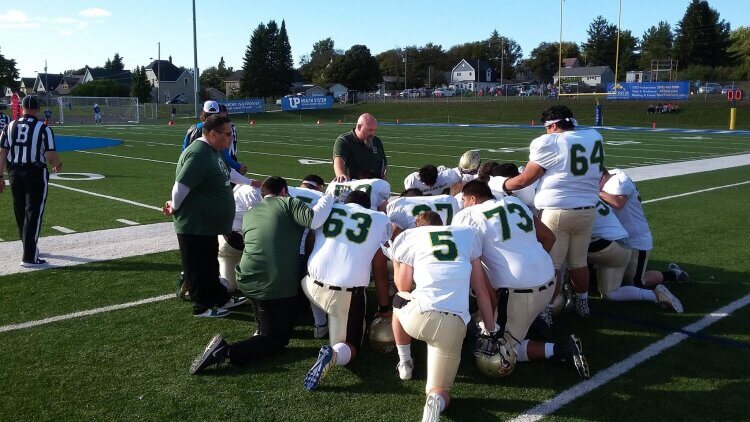
What is it about college sports that creates such loyal and ardent followers and passionate participants? Is it the allure of the high from the victory that keeps people coming back even after they suffer through the low of defeat? Is it the connection to something more than one’s self or the opportunity to create an identity around engagement in something with others? Or, is it just simply the love of a game?
College sport is grounded in the ideals of amateurism and fairness. Beginning in 1869 with the first collegiate competition between Harvard University and Oxford University rowing teams, the competitive spirit has captivated the consciousness of the United States throughout history. Socially valued characteristics like hard work, perseverance, and the ability to work well with others are all expected to be learned and reinforced through engagement in competitive sport. As sport has become further integrated into our nation’s character, the emphasis placed on winning has also increased exponentially. This change has shifted the focus away from the experience to the outcome. Increased commercialization further changed the student-driven experience sport was founded on to a business model aimed at increasing institutional profits. The perceived importance of successful teams cemented the value of sport on college campuses nationwide (Gems, Borish & Pfister, 2017).
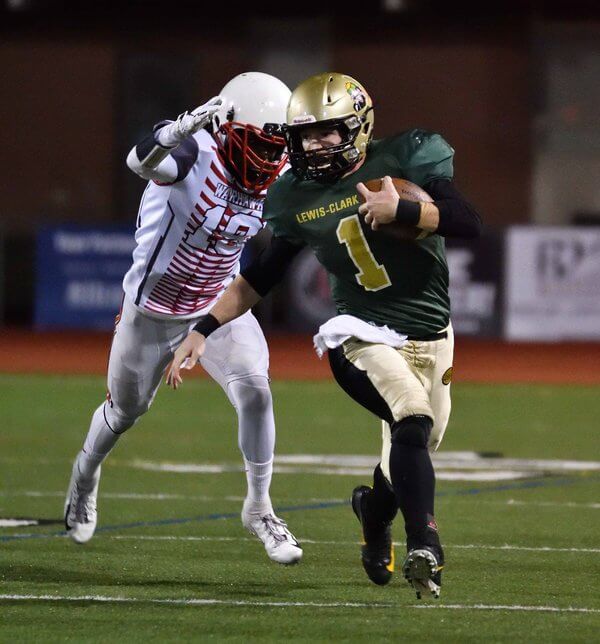
Despite its humble beginnings as a space for student growth physically, psychologically, and socially (Gems, Borish & Pfister, 2017), college sport has evolved in its purpose and role and now finds itself in a tenuous place. Public college and university budgets are stretched thin because of declining financial support from state governments, athletic departments face increased costs related to the “arms race” ever-present in college athletics, and concerns about whether it’s possible to safely participate during a global pandemic are a reality. Sadly, some institutions are choosing to cut teams to try to balance their budgets. The loss of teams translates to lost opportunities for young people to play, compete, and reap the psychological, social, and physical benefits that can be gained through participation in safe and supportive participatory spaces. If we, as fans of sport, believe that the opportunity to play is valuable, it’s critical that we begin to examine the organizational structure of sport to identify, create, and facilitate a model that is safe, supportive, and sustainable in these increasingly challenging times. A good place to begin this effort is to examine the programs that have figured out how to do it well.
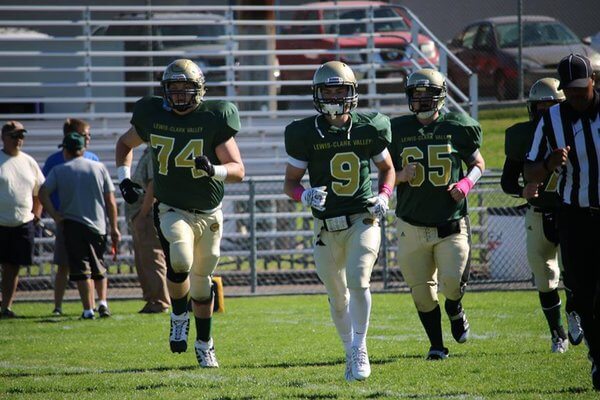
What if I told you that a college-level football program exists that is affiliated with the National Collegiate Athletic Association (NCAA) but is not sanctioned by a college/university, competes against NCAA Division-III football teams, and is composed of young men who embrace the opportunity to play without any hope for athletic scholarship support? What if I told you that a team exists that is led by men who have other full-time jobs but coach for free because football is their passion? Would you believe me if I told you that one man, the Director of the program, is responsible for recruiting, fundraising, travel, game management, and equipment management? And, that game days are facilitated solely because of the help of volunteers?
The story of the Lewis-Clark Valley (LCV) Loggers program is not about the revenue driven model of college athletics frequently discussed by pundits on sport talk radio. Rather, this true story is about a competitive football program built solely around love and passion for the game of football. Based on interviews with student-athletes, members of the coaching staff, and the Program Director, this 4-part series will introduce you to the LCV Loggers football program, share snapshots of their unique story, and invite you to consider how a model similar to the LCV Loggers may provide a different, financially sustainable structure for college athletics that maintains amateurism and celebrates student-athlete growth.
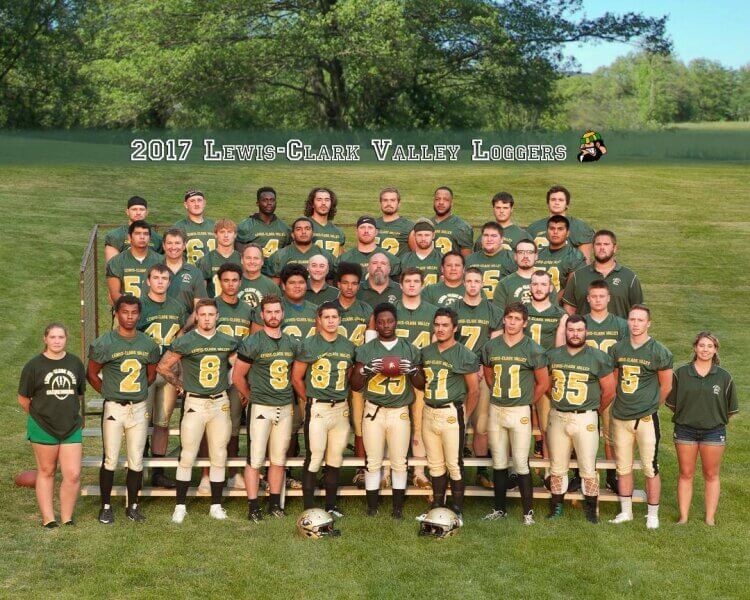
The Lewis-Clark Valley Loggers Football Program
In 2013, the Lewis-Clark Valley Loggers Football Program was created in Lewiston, Idaho. Located in North Central Idaho, Lewiston has a population of approximately 30,000 people. Directly across the river is Clarkston, Washington, a slightly smaller town with a population of approximately 20,000 people. Lewiston sits at the confluence of two rivers, the Snake River and the Clearwater River. It’s a river town with a desert climate that appeals to outdoor enthusiasts and retirees. Also present is Lewis-Clark State College, a small, public college. LC State competes in the National Association for Intercollegiate Athletics (NAIA) but does not have a football team. Across the river in Clarkston, Washington is a satellite campus for Walla Walla Community College, a two-year school where students can complete a variety of technical degrees and/or general education requirements. As a satellite campus, WWCC-Clarkston does not have an athletic program. Located just 45-minutes away to the North are two universities, the University of Idaho and Washington State University, both of which compete at the NCAA Division-I level.
The LC Valley Loggers program was created to provide opportunities for young men in in the region to play college-level football. With no NCAA Division-II, NCAA Division-III, or community college football programs in the state of Idaho, and only one NAIA program offered at a private institution, there was simply very limited opportunities for student-athletes not prepared to compete at the NCAA Division-I level to play in Idaho and few places to play outside of Idaho in bordering states. Young men who consider playing for the Loggers do so with the full understanding that there are no opportunities for athletic scholarships, simply because they don’t exist. Regardless, student-athletes expressed how much they valued their experience. One student-athlete shared, “I’m just pretty thankful for the opportunity to play up here, excited. I thought I’d never be able to play football again and I had no idea where I wanted to, like, go in life, you know, and this just kind of put me on a really good path… .”
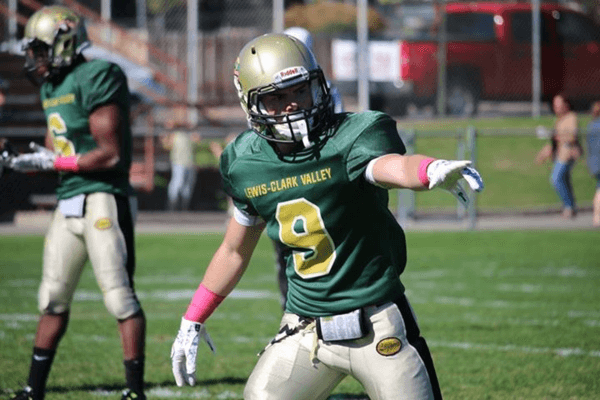
Players also know they get a real opportunity to play right away. Some even play both ways, on offense and defense, sometimes because they want to and other times because they have to. Roster size tends to hover around 40 players at the beginning of the season, but because of a variety of reasons, it often decreases in size to between 25-30 players by the end of the season. The opportunity to earn sizeable minutes as a freshman and sophomore is an enticing and exciting opportunity. In many other football programs, with the exception being community college programs, most freshmen redshirt, or, if they’re on an active roster, receive very little playing time behind their more seasoned older teammates.
All members of the LC Valley Logger’s program are full-time undergraduate students at Lewis-Clark State College. Though the College offers no financial support to the program, the football program confirms with recruits that should they choose to join the program, they must also be full-time students at LC State. Members of the Logger leadership believe strongly in the importance of bettering oneself and the value of education. In fact, two members of the leadership team, are educators. Gene Straughan, an assistant coach, is a Justice Studies professor at LC state and the Program Director, Bob Thorson, is a former marketing professor at Lewis-Clark State College.
Central to the philosophy of the Loggers program is an unwavering commitment to create opportunities to support the positive growth of young men academically and athletically. At the heart of this effort is Thorson. “We’re all part of Bob’s staff, but essentially it’s Bob,” shared Coach Straughan. “No matter how you spell his name, forward or backward, it all comes out the same. What he’s doing goes way beyond the call of duty to make this program work.”
Up Next, Part II. An Idea and a Dream Bob Could Not Let Go
If you are interested in following the LC Valley Logger Football Program, please visit their website at www.lcvalleyloggers.com and check them out on Facebook at “Lewis-Clark Valley College Football.”
References
Gems, G., Borish, L.J., & Pfister, G. (2017). Sports in American history: From colonialization to globalization. (2nd ed.). Champaign, IL: Human Kinetics.

Nice article.
Congratulations!
Carole Casten